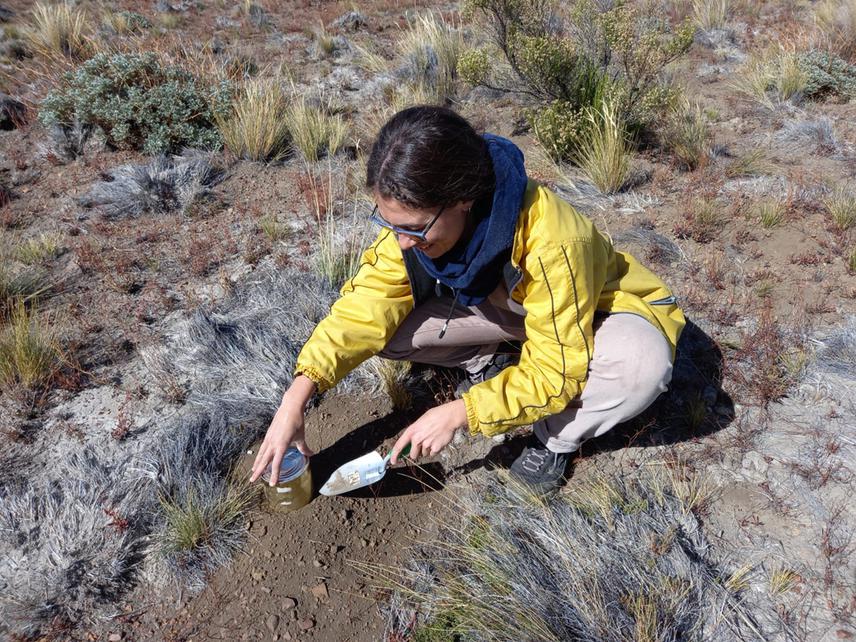Yermén Acebal Ghiorzi
Subterranean rodents are ecosystem engineers that modify the environment in which they inhabit. Our main aim for this project will be to study the effects of the rodent Ctenomys haigi (the Patagonian tuco-tuco) on the biodiversity, productivity, and resilience of northwestern Patagonia semi-arid grasslands.

Extraction of soil samples to be taken to the laboratory.
The surface and volume of soil removed (mounds) for the construction of burrows will be estimated as an indicator of the soil impact. The changes on the physical-chemical properties of the soil will be analyzed between disturbed and undisturbed microsites by the rodent. The vegetation cover, species richness and diversity, seed bank, and seedling recruitment and survival inside and outside enclosures against herbivores will be also studied.
The information derived from the study will be used in biodiversity conservation plans. In addition, we will hold two workshops with stakeholders and ranch workers to provide information on important concepts for conservation and our results after the study.
Header: Installation of the enclosure.